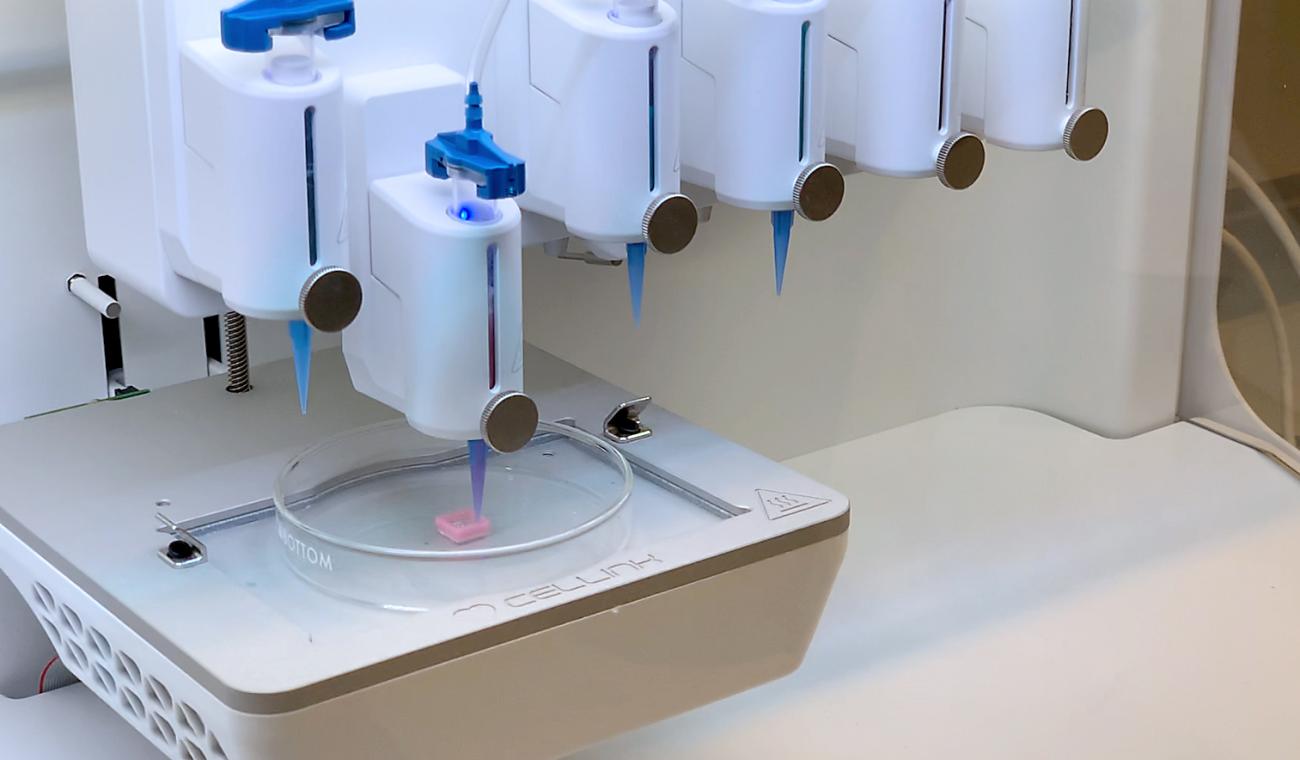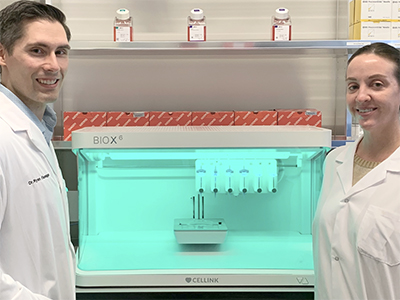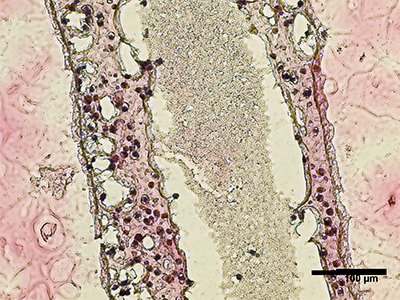
In a pair of world firsts, scientists at the Vancouver Prostate Centre have 3D printed human testicular cells and have identified promising early signs of sperm-producing capabilities.
The researchers, led by Vancouver Coastal Health Research Institute researcher and UBC urology assistant professor Dr. Ryan Flannigan, hope the technique will one day offer a solution for people living with presently untreatable forms of male infertility.
“Infertility affects 15 per cent of couples and male factors are a contributing cause in at least half those cases,” says Flannigan, whose lab is based at the Vancouver Prostate Centre at Vancouver General Hospital.
“We are 3D printing these cells into a very specific structure that mimics human anatomy, which we think is our best shot at stimulating sperm production. If successful, this could open the door to new fertility treatments for couples who currently have no other options.”

Within human testicles, sperm is produced by tiny tubes known as seminiferous tubules. In the most severe form of male infertility, known as non-obstructive azoospermia (NOA), no sperm is found in ejaculate due to diminished sperm production within these structures.
While in some cases doctors can help NOA patients by performing surgery to find extremely rare sperm, Flannigan says this procedure is only successful about half the time.
“Unfortunately, for the other half of these individuals, they don’t have any options because we can’t find sperm for them.”
Those are the patients Flannigan’s team is hoping to help.
For the recent study, the researchers performed a biopsy to collect stem cells from the testicles of a patient living with NOA. The cells were then grown and 3D printed onto a petri dish into a hollow tubular structure that resembles the sperm-producing seminiferous tubules.
Twelve days after printing, the team found that the cells had survived. Not only that, they had matured into several of the specialized cells involved in sperm production and were showing a significant improvement in spermatogonial stem cell maintenance — both early signs of sperm producing capabilities. The results of the study were recently published in Fertility and Sterility Science.

The team is now working to “coach” the cells into producing sperm. To do this, they will expose the cells to different nutrients and growth factors and fine-tune the structural arrangement to facilitate cell-to-cell interaction.
If they can get the cells to produce sperm, those sperm could potentially be used to fertilize an egg by in vitro fertilization, providing a new fertility treatment option for couples.
“Increasingly, we are learning that there are likely many different causes of infertility and that each case is very patient specific,” says Flannigan. “With that in mind, we are taking a personalized, precision medicine approach — we take cells from a patient, try to understand what abnormalities are unique to them, and then 3D print and support the cells in ways that overcome those original deficiencies.”
This research is supported by Michael Smith Health Research BC, the Canada Foundation for Innovation, Canadian Institute of Health Research, Vancouver Coastal Health Research Institute, American Society of Reproductive Medicine, Canadian Urologic Association Scholarship Foundation and the Vancouver Prostate Centre.
Read the original news release on the UBC Faculty of Medicine website.


